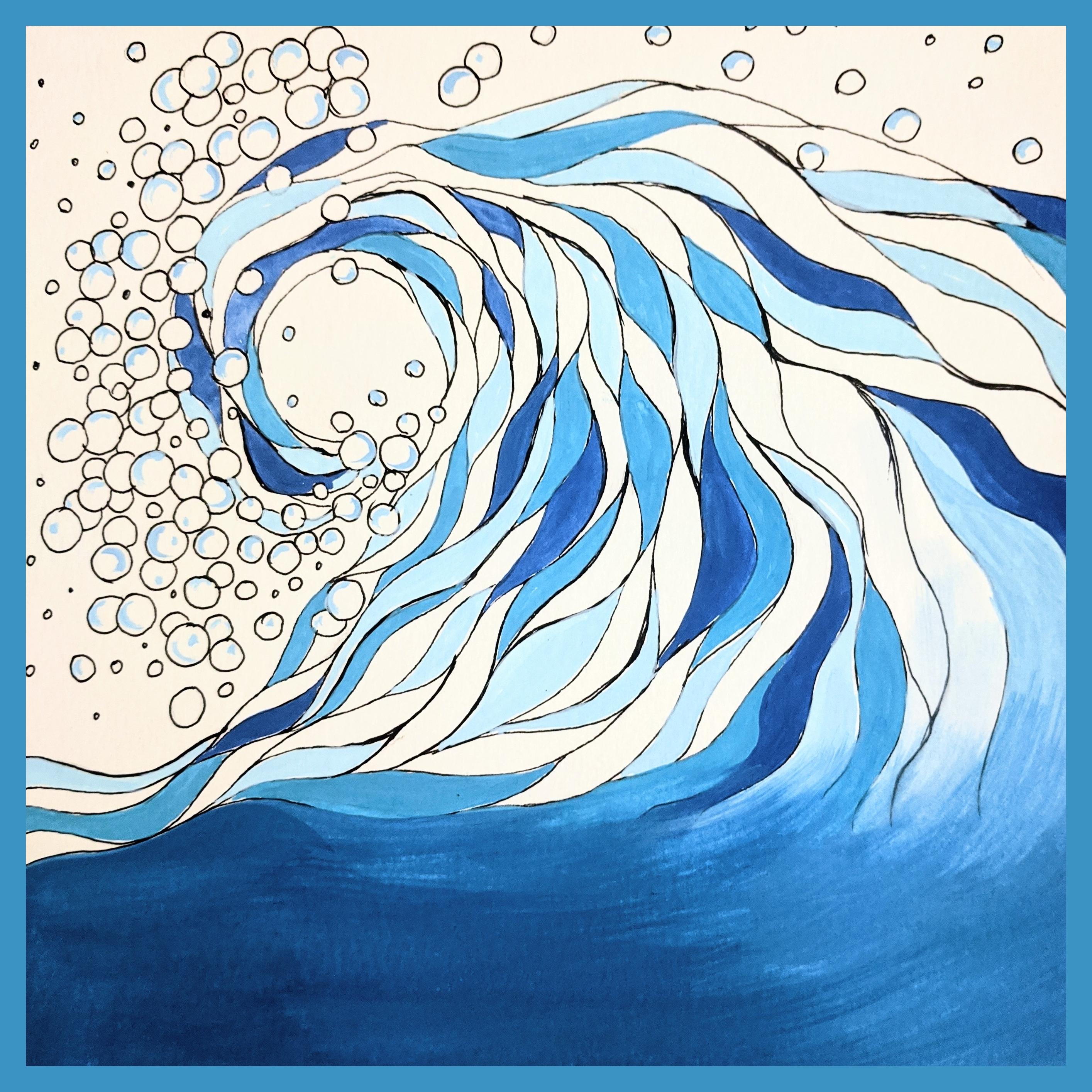The False Dichotomy Between Being And Doing

IMAGE OF THE WEEK
We are grateful to Rupali Bhuva for offering this hand-made painting for this reading.

One believes that "being" and "doing" are different. Often, "just being" is regarded as preferable or somehow more authentic. With maturing of insight, however, one realizes that this perceived dichotomy between 'being' and 'doing', though it might at first seem and feel self-evident, is in fact essentially mistaken and based on a false impression.
It rests on three basic and connection assumptions: (a) that there is an objective reality that we can and should 'be with'; (b) that anything other than the 'simply knowing' awareness is somehow a labored and artificially constructed state; (c) 'being' involves no effort and Self will not be constructed there.
It turns out, though, that whenever there is *any experience at all*, there is always some fabricating, which is a kind of 'doing'. Often, we revert to 'just being with things as they appear' and this reversion becomes a default into the assumption of 'being with things as they are' without realizing it. Without enough experience in seeing how we fabricate our perceptions, it can be difficult to overcome the tacit assumption that things really are how they appear or that they really are the way they are, in and of themselves. It can be difficult even to realize that such assumptions are there. What seems like 'just being with things as they appear' will undoubtedly involve all kinds of views and assumptions, mostly unrecognized, about what is perceived.
Actively cultivating a range of skilful ways of looking is premised on the understanding that we are *always and inevitably* engaged in some way of looking at or relating to our experiences. But we are not usually aware of this fact. Nor are we usually aware of *how* we are looking -- what exactly the view is -- at any time. We are either engaging a way of looking at experience, self, and the world, that is creating, perpetuating, or compounding suffering to some degree, or we are looking in a way that frees. These habitual and normal tendencies to view things in ways that fabricate, compound, and tighten suffering are deep-seated and difficult to reverse. Nevertheless, that is the great and beautiful work of the path.
Excerpt from the book 'Seeing That Frees'.
SEED QUESTIONS FOR REFLECTION: How do you relate to the notion that "whenever there is any experience at all, there is always some fabricating, which is a kind of 'doing'"? Can you share a personal story of a time you became aware that the dichotomy between doing and being was a false one? What helps you cultivate looking in a way that frees?